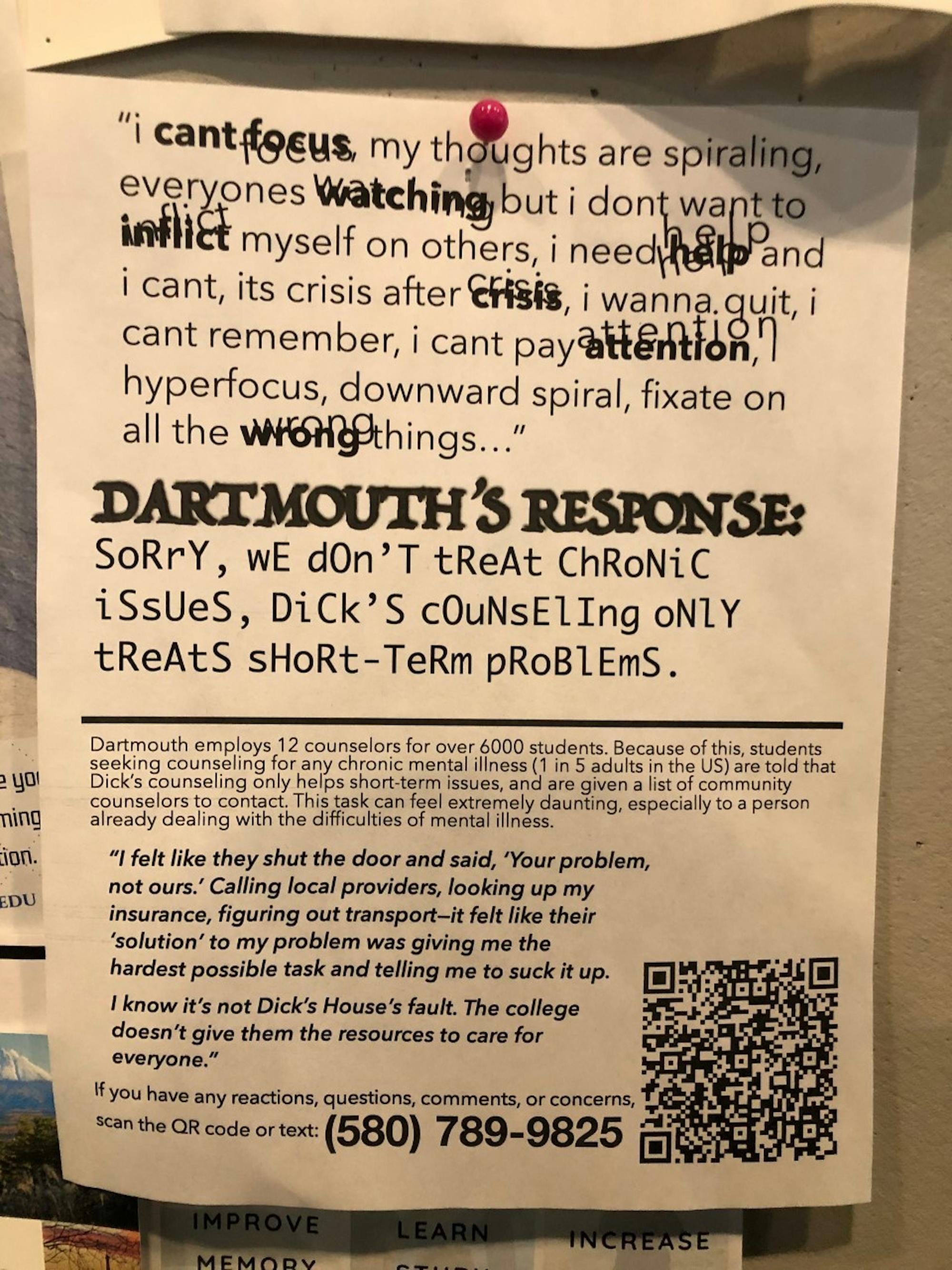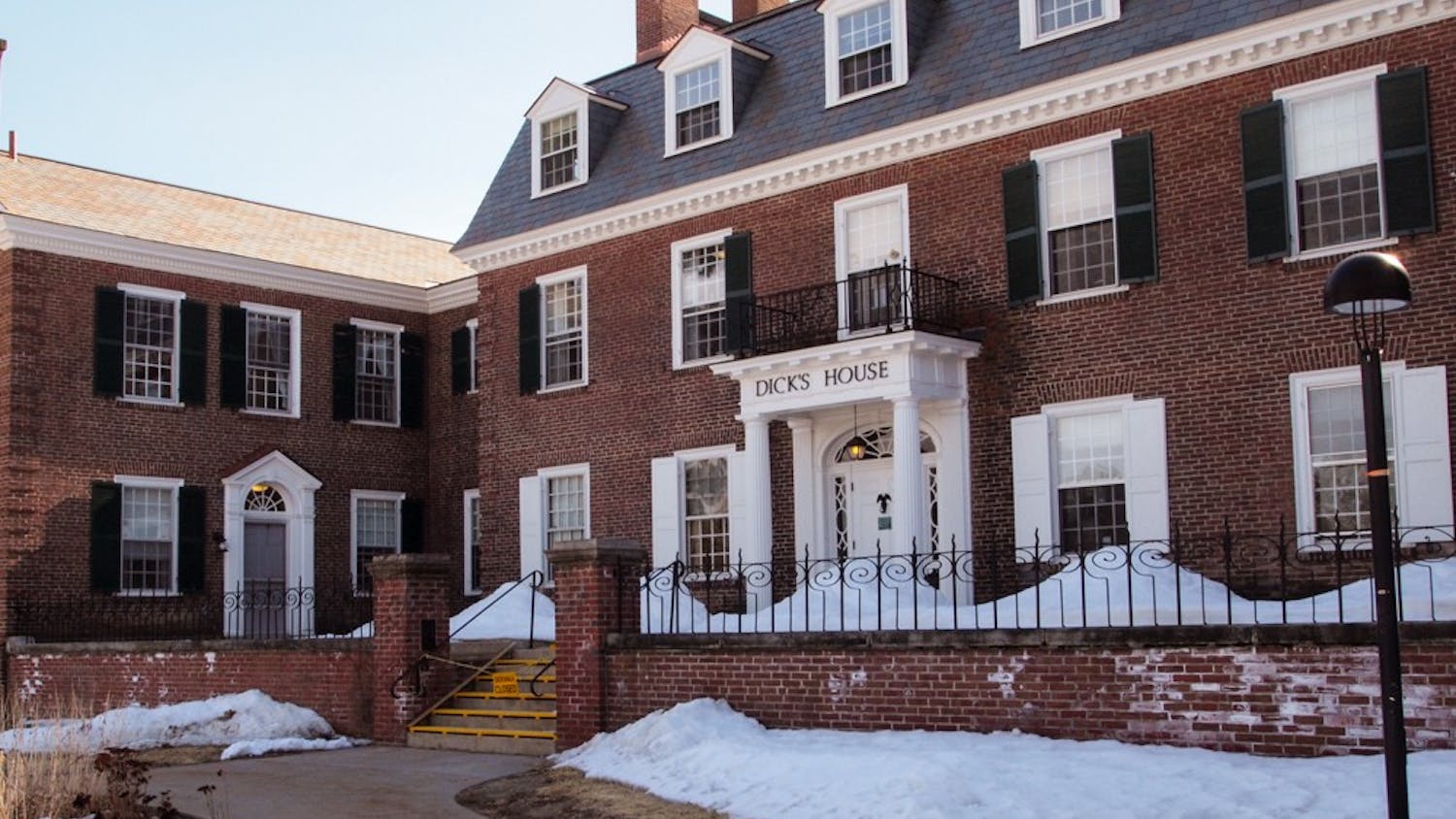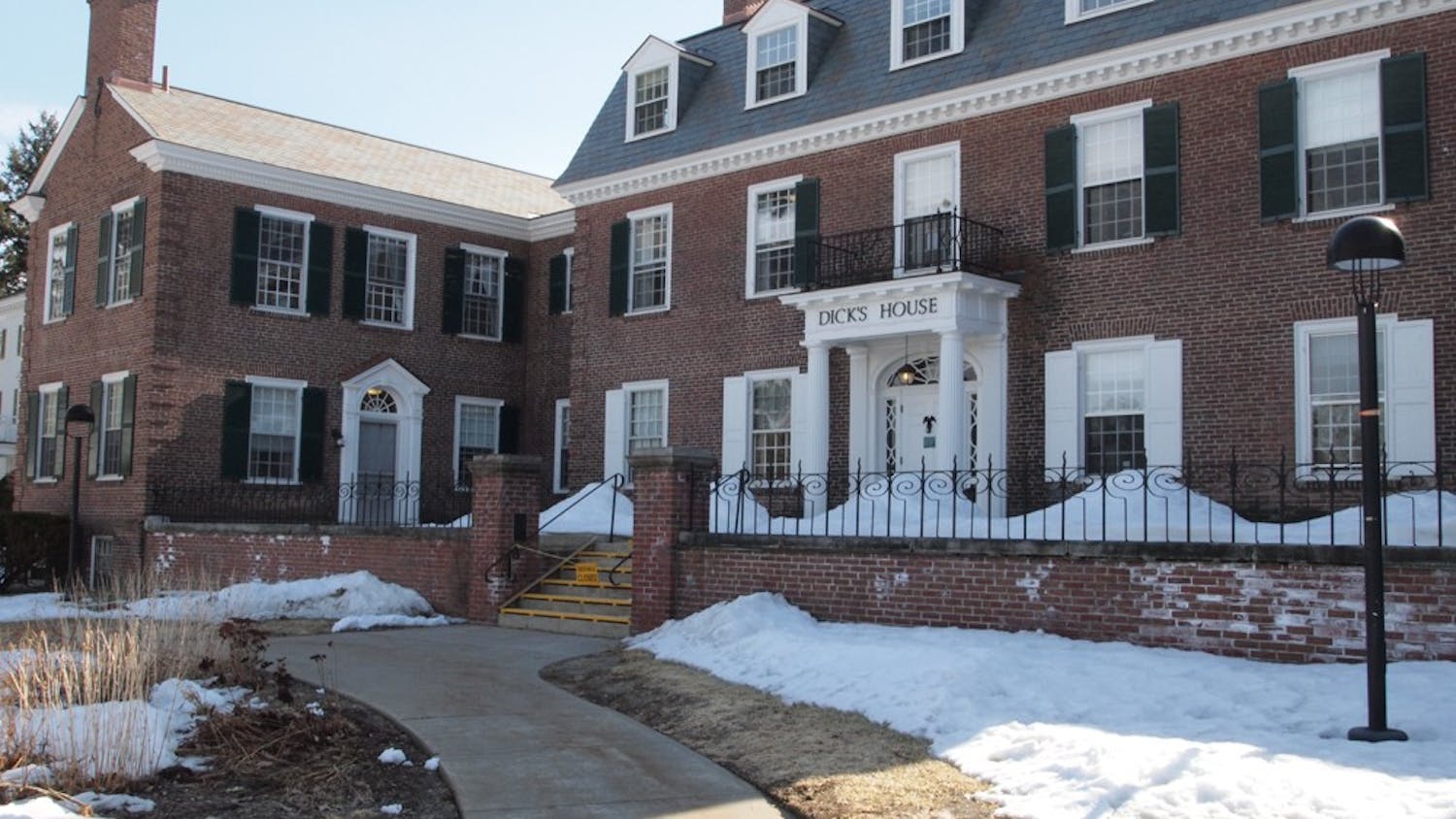Near the beginning of this term, a poster was hung in Novack Cafe criticizing how the College addresses mental health on campus. The poster specifically called attention to the fact that Dick’s House employs only 12 counselors for over 6,000 students, and how it does not provide long-term individual counseling services.
The poster described how students with long-term concerns are forced to seek local support — a process the poster stated could be stressful and emotionally taxing. It also included a number and a QR code that could be reached for reactions and comments.
“Sorry, we don’t treat chronic issues, Dick’s counseling only treats short-term problems,” the poster stated as an example of the College’s response to students asking for long-term counseling.
Additionally, the poster contains an apparent testimony from a student in which the student says that they were told to call local providers, look up their insurance and organize their own transport — a solution the alleged student said was the College “giving [them] the hardest possible task and telling [them] to suck it up.”
However, Dick’s House counselors told The Dartmouth that, in conjunction with other initiatives and student organizations, there is a range of mental health resources for students on campus.
Counseling Center director Heather Earle said that she sees the counseling center as consisting of two branches: counseling and outreach. She added that counseling focuses on individuals and that outreach encompasses 300 hours on campus per term.
Dick’s House psychologist Bryant Ford also added that Dick’s House has started numerous initiatives with the goal of spreading awareness of mental health on campus. One of these initiative is called Campus Connect, a peer education program that aims to address suicide prevention.
“It really builds from sort of teaching people how to develop empathy for people who might be in a crisis,” Ford said.
Ford added that Dick’s House, in collaboration with the Student Wellness Center, has other initiatives that can provide students with knowledge about general mental health topics, which can include anxiety, depression, eating disorders and substance abuse.
While Earle said that Dick’s House is actively trying to assist students with mental illnesses, there are many challenges.
“In an ideal world, it would be great if we could do long-term therapy with any student that wants to, right?” Earle said. “You know, we don’t live in an ideal world, and we serve the whole campus community.”
Earle said that for Dick’s House to serve the entire student population, the Counseling Center has to provide short-term therapy, as opposed to long-term counseling. However, Earle added that Dick’s House does not have a policy that limits how many appointments a student is limited to.
“We don’t put a tie, we don’t say you can only have six or eight or 12,” Earle said. “You know, we try to stay away from that and let the clinician and client look at figuring that out themselves.”
Earle said that directors and clinicians at all colleges and universities would like to do more long-term work with students, but are unable to due to limited resources and high demand. However, Earle added that Dick’s House does offer a form of long-term counseling in the shape of group counseling.
Ford said that unlimited psychotherapy provided by the College would be impossible to do. However, he said he believes that many students are unaware of other things the College does to address student mental health.
“I think for many students, they will hear about what they think Dartmouth does through friends or peers, but may not really understand some of the processes that are going on, not only with the health service, but other places on campus that are involved in mental health advocacy,” Ford said.
Both Earle and Ford said they were concerned that some students may be unaware of all the mental health resources available on campus. Members of the Mental Health Student Union also expressed the same concern.
Mental Health Student Union vice president Brian Kim ’23 said that turnout for the MHSU program Late Night Solace — a peer support program in which students can talk to volunteers who have undergone over 30 hours of training — is still low. However, Kim added that Late Night Solace has only existed for three terms and that MHSU is currently focused on increasing their presence on campus.
“I think most students here don’t even know this club exists,” said MHSU secretary Pulkit Nagpal ’23. “So, we want our student peer support program out in the open.”
Earle said that the MSHU is helping make mental health resources more widely accessible. Earle added that as of right now, both the counselors at Dick’s House and the MHSU are working on making the College an environment where mental illness can be openly talked about — an initiative that Ford supports.
“I would love places and opportunities for people to really be able to talk about some of these issues,” Ford said. “One, to destigmatize it, and to really correct some of the misperceptions [that] are happening on campus regarding not only mental services, but mental health advocacy.”
Nagpal said that he would like to introduce an online course for mental health resources, similar to AlcoholEDU and the Sexual Violence Prevention Project — courses that incoming students must complete before orientation.
Both Earle and Ford said they supported that idea, with Ford adding that it could be helpful for students to know the breadth of mental health resources available to them on campus.
Sports psychology director Mark Hiatt said that student-athletes are also bringing mental health into public conversation through an initiative called “D-stigmatized,” which will launch in the near future.
Hiatt said that athletes are perhaps less likely to access mental health services and that some current student-athletes are “trying to destigmatize that and promote mental health and wellness among student-athletes.”
Both the MSHU and the counselors at Dick’s House expressed hope for the evolving ways in which the College will tackle student mental health in the future.
“I will say one of the things that I really appreciate about Dartmouth students is no matter how much they may have some grievances against mental health services; the students are involved,” Ford said. “I am always amazed at how students are willing to sort of look after one another.”
The individual or group behind the poster in Novack did not respond to requests for comment.




